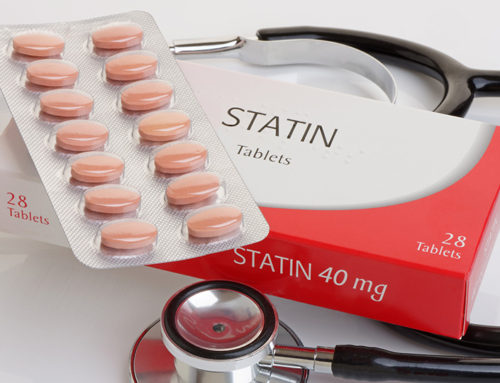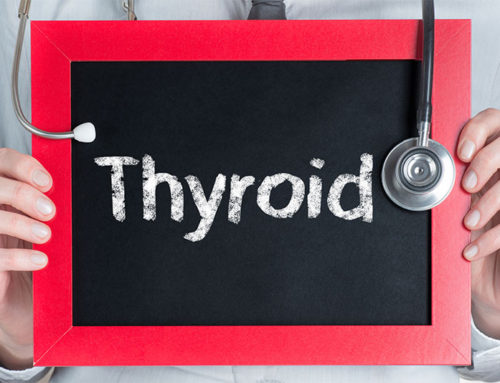A new study in the American Journal of Clinical Nutrition looked at biomarkers of chronic disease among people who routinely consume a lot more fish oil than we do: the Yup’ik Eskimos.
Based on this study, it appears we could use a heck of a lot more omega-3’s than we’re currently getting. Read on to see why.
The researchers tested the blood of 357 Yup’ik Eskimos and measured the amount of EPA and DHA- the two omega-3’s found in fish—in their red blood cells. The results were unequivocal. Higher levels of EPA and DHA were associated with lower levels of triglycerides– a huge risk factor for heart disease. In addition, higher levels of EPA and DHA were associated with higher levels of HDL cholesterol (the so-called “good” cholesterol) as well as higher levels of apolipoprotein A-1 (the main protein component of “good” cholesterol).
High levels of EPA and DHA were also associated with significantly lower levels of C-reactive protein, one of the main inflammatory markers in the body.
I’ve written extensively about inflammation, most recently in my book, “The Most Effective Ways to Live Longer” . Inflammation is a factor in virtually every major degenerative disease we know of, from diabetes to Alzheimer’s, from heart disease to obesity. Omega-3’s are among the most anti-inflammatory compound on the planet, so it’s no wonder that a marker of inflammation like C-Reactive protein goes down in the presence of high levels of omega-3’s in the blood.
In this study, scientists examined the levels of EPA and DHA as a percentage of total fatty acids in the red blood cells. EPA and DHA comprised an average of 2.8% and 6.8% respectively in the red blood cells of the subjects.
The authors of the study conclude that “increasing EPA and DHA intakes to amounts well above those consumed by the general US population may have strong beneficial effects on chronic disease risk”.
Worth mentioning: I’m frequently asked what’s the “right” amount of omega-3 to consume on a daily basis. My answer is “it depends on what you’re after”. While ½ a gram will probably give you some measure of protection (and put you way above average compared to the rest of the country) the truth- as shown by this study- is that you can use a whole lot more.
Personally, I take two tablespoons of fish oil a day (plus flaxseed oil on my salads and flaxmeal sprinkled on just about everything). There’s no downside, and the benefits- as this study shows- are enormous.














Hey Jonny, how many 1 gram fish oil capsules do I need to match Yup
Hi
Well, these researchers never actually gave fish oil to the subjects they just measured EPA and DHA in their blood. But my guess, based on blood tests I’ve had done on myself, is that a tablespoon to two tablespoons a day would be plenty!@ and it’s so easy to get that amount if you use the liquid (The one i use is Barlean’s Fresh Catch, up on my website store under fish oil)
warmly
jb
How many 1000mg. capsules of Omega 3 oil should I take daily???
Well first of all remember that it’s not the amount of omega-3 per se that’s in the capsule, it’s the amount of DHA and EPA that you care about- not all omega-3 fish oil is DHA and EPA; that said the minimum amount of DHA and EPA together should be at least 1/2 gram (500mg) but i personally think we would all do best with much more than that. (I personally take two tablespoons of the actual oil, but even two teaspoons would do you very well!)
warmly
jb
[…] This post was mentioned on Twitter by S.I. Assocation. S.I. Assocation said: How much omega-3
Another great post!
I remember reading an article from Poliquin,saying that if your teeth/gums bleed then its probably because of c-reactive protein causing inflammation….His recommendation was,surprise surprise,to take fish oil!My gums/teeth bleed from time to time and I was really worried,although now I ordered some Barleans fish oil 😀 Any other tip you can add about dental health/lowering c-reactive protein??
Thanks in advance!
I think Charles got it right. Dental health is very related to heart health in general. And fish oil to lower inflammation is definitely the go-to recommendation, if in fact that’s what’s causing the bleeding. Of course I’d always check with your dentist as well to make sure there’s no gingivitus or periodontal disease going on..
warmly
jb
Great post Jonny,
As well as the benefits you mentioned above I’ve noticed fish oil has a strong influence on mood. I actually feel much better day to day when I’m taking it.
I’ve consumed fish oil (and flax) for a couple of years now and recommend it to anyone interested in boosting their health & performance.
Jonny — Can you get DHA and EPA from raw eggs? If I ate 3 raw eggs a day, would I get my EFAs in a good enough amount?
Thanx, Jonny. You’re the best. I think you should open a school for nutrition. I would sign up. Do it online. What an opportunity. Combine it with a naturopathy degree and you’d have a hit. A lot of people are leaving the country, and it would be a good profession to make a living with outside the U.S., helping people to be healthy with diet, nutrition, herbs, and natural treatments.
Thanks Cheryl!
There is some DHA in “omega-3” eggs and i certainly eat them, but you’d have to look at the actual amounts per egg. Personally i take a couple tablespoons a day of fish oil and it would be next to impossible to get that amount from a few eggs. The “ideal” amount is hard to say, but I like at least 1000 mg a day of combined EPA and DHA. The nutrition facts label on the egg container should tell you how much DHA and EPA is in each egg.
warmly
jb
I heard that the best omega 3 is from mega red krill oil? Is that true?
Hello Dr. Johnny, I enjoyed this article immensely. I research fats and want to share that the molecules DHA and EPA in fish oil is not the same molecule that would be in us humans nor the Yup’ik. (open to giving you more details)
These long chain fats are very vital as you pointed out. A person can feel an effect when taking fish oils but it is like putting a square peg into a round hole. I now get my omegas from the same source as the Yup’ik or Inuits, a mammalian source.
Yes a holistic dentist and I both understand that if you swish good omegas in your mouth then issues with bleeding gums, etc. will be helped or the case of some of my clients and family, disappear all together.
This is such a valuable area to share around the world. That is exactly my desire and plan.
Look forward to hearing from you.
Warmest regards, Cheryl
I’d be happy to look at any information you have to share. Until shown scientific evidence to the contrary, I’d have to go with the established consensus that the EPA and DHA in fish oil are exactly the same molecules as found in the human body– in the case of DHA it’s a 22 carbon chain with 6 double bonds the first of which is at the 3rd position (22:6 (n-3) ), in the case of EPA, a 20 carbon chain with 5 double bonds, the first of which is at the 3rd position (20:5 (n-3) ). That’s what’s in fish and that’s what’s in us. But please send me whatever you’d like me to see!
warmly
jb
Hello Dr. Jonny,
Will do. I am waiting on the University of Toronto to print something, until then I can only share what they share in conferences.
Warmly,
Cheryl
Dr. Jonny,
Thank you for your wonderful article!
I’m wondering if there are certain sources of these omega-3s that can be more beneficial than others. Certain companies choose to use anchovies, others choose to use krill. Many of them claim to be the “best source” of omega-3’s, but I am curious to know if there is any truth to those claims.
With all of the different sources, it can be rather confusing to try and figure which product is the higher quality.
I know that you endorse certain brands, but is there a specific source that you can recommend other than the broad spectrum of just “fish”?
Jonnybowdenblog…
[…] something about jonnybowdenblog[…]…
I think these diseases most likely happened to them possibly because of the mercury poisoning. Did they check the mercury levels in their blood ? All those bad effects can be due to the mercury very well
How many 1000mg. capsules of Omega 3 oil should I take daily???
I’m 5ft 5inc, 160lbs,…..the caps and oil is from plants.
THANKS!!!
Why don’t you answer all the questions above ? You steer away from the ones that ask you about red krill oil. You lose all credibility when you pick and choose which questions you will answer.
The conclusion I see is: eat more fish (the type they eat).
The question now is: is MORE really better and why not just eat fish?
Also… We are just talking about one aspect of nutrition here. If we applied the same attitude to all kinds of vitamins and nutrients, we could potentially we popping 25-30 pills daily. If you will go to that extent to be as healthy as you can be, would it not be better to take the time to plan your diet and cook from scratch so that you get everything you need from food? This means cutting out empty calories and making every calorie count.
Hi
I am 44 years old. my height is 5 ft 9 in. How much omega 3 should I take in a day? according to the new research one should not take Omega 3 , it may cause Clots in the brain.
Please advise..
Thanks
I would say 1 – 2 g a day of EPA/ DHA. Quality matters too: You also want to take a very high-quality fish oil, since the cheaper stuff is oftentimes rancid.
Dr. Bowden,
I found a brand that provides 1,600mg of EPA and 800mg of DHA per serving (2 capsules). That adds up to 2400mg. Is a 2.4g serving size too much. I was planning on taking two servings per day for a total of 4.8g. I currently use flax meal 4.5g/day and plan on continuing with flax. My reason is to reduce inflammation and lower my BP, for which I am currently taking beet root juice (1 cup/day) and CoQ10 (120mg/day).
One other thing about the fish oil. This product is “molecularly distilled”. Does this mean that the mercury has been removed?
Thank you.
That amount should be fine. Molecular distillation should remove mercury and other toxins, although buying from a reputable brand is also crucial.
Hey, I lately came to this internet site and I’ve visited it daily because that so that you can remain up to date. Maintain up the great function.